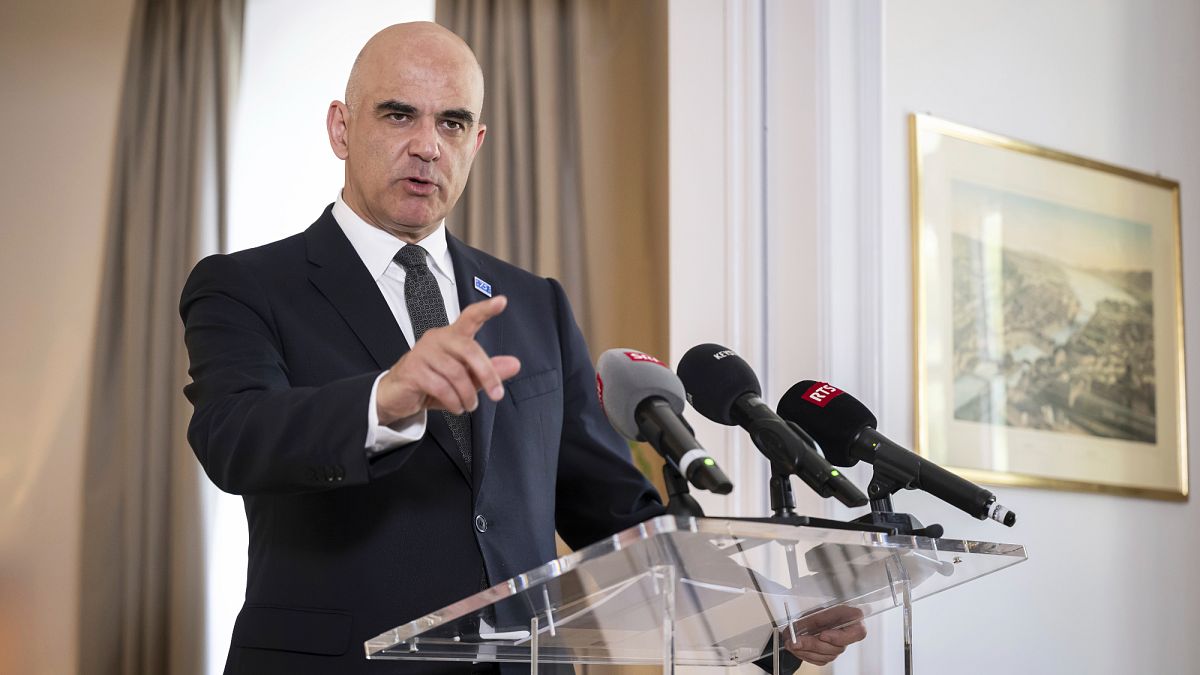Published on
ADVERTISEMENT
The Council of Europe (CoE) is “ready to create the tribunal for Ukraine”, but now member states must make it a reality, the institution’s Secretary-General, Alain Berset, told Euronews in an interview.
“We had a strong commitment addressing the necessity to create this tribunal. We are ready to have an advanced team to make it real. What we need now is really a clear support and commitment from states,” Berset said in New York on the sidelines of the UN General Assembly.
The Special Tribunal for Ukraine is a new international judicial body established by treaty between Ukraine and the CoE in June, intended to prosecute the crime of aggression committed against Ukraine.
Its main purpose is to fill a legal gap: the International Criminal Court (ICC) has jurisdiction over war crimes, crimes against humanity, and genocide, but it currently cannot prosecute the crime of aggression in the case of Russian aggression against Ukraine under its existing mandates.
“Some countries need to make a decision on their side, such as also ratifying it in national parliaments, it could take time,” he explained.
The CoE is an international organisation based in Strasbourg, established after the Second World War to promote democracy, human rights, and the rule of law across Europe.
It is not part of the European Union and is composed of 46 member states. Through its European Court of Human Rights, individuals can bring cases where they consider they have suffered a breach of their rights.
Challenging courts
“It is clear that courts are challenged, and it is not a good situation, because we need to have order, which means respecting what the courts are doing and respecting the independence of the judiciary. It is really important not to destabilise the system,” Berset added.
In recent months, both Hungarian Prime Minister Viktor Orbán and US President Donald Trump have publicly challenged the authority of the International Criminal Court (ICC) concerning arrest warrants issued for Israeli Prime Minister Benjamin Netanyahu.
In this context, Berset said the CoE it trying to expand its role within the institution supporting the multilateral system: the United Nations.
“We want to deliver within the context of the UN to deliver where others fail,” he said.
The CoE court was also recently challenged by some member states.
In May, nine Council of Europe member states sent an open letter to the European Court of Human Rights, criticizing its migration rulings.
They argued that the Court’s interpretation of human rights law limits national governments’ ability to expel foreign nationals convicted of serious crimes and manage migration effectively.
“Migration in Europe is a very important discussion, no problem with this, but the discussion should not happen on the case law of the court. It should happen at the political level,” Berset concluded.
